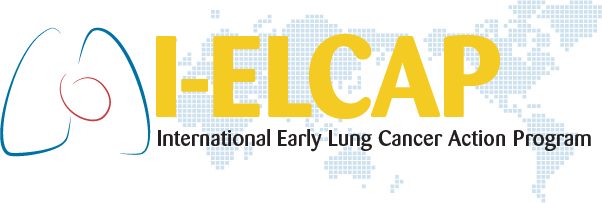Meet the Doctors
Principal Investigators

Claudia Henschke, PhD MD
A pioneer and leading expert in diagnostic radiology, Claudia Henschke has long believed that smokers and those exposed to second-hand tobacco smoke should be screened for early detection of lung cancer, when a tumor is still small enough to be cured. She has authored more than 500 scientific articles and chapters in statistics and medicine, authored three books and received 14 patents. She has mentored more than 80 medical students, fellows, and faculty, including for doctoral and master’s degrees. Her PhD thesis and statistical efforts included work on the use of neural networks and modeling of large national databases for large scale national programs.
In 1992, she started the first low-dose CT screening study in the world, the Early Lung Cancer Action Project (ELCAP), reported in the Lancet on July 9, 1999. Since then, she has led city, state, national, and international projects implementing lung screening, providing invaluable research in over 400 publications. Dr. Henschke has always been mindful of the unique needs of women and has shown that women are at greater risk of lung cancer than men.
Dr. Henschke developed and heads the International Early Lung Cancer Action Program (I-ELCAP), an international collaborative group of physicians and scientists who are experts on lung cancer-related issues. The I-ELCAP sites have screened over 85,000 people at 82 institutions in 10 countries around the world. This rich and internationally diverse collaboration has met two times per year since 1999 (41 conferences to date) for continued improvement of lung screening as well as the added benefits of early detection of cardiovascular, breast, and other diseases that can be identified in a single low-dose CT scan. I-ELCAP’s computer management system is currently being translated into an open-source system (VAPALS-ELCAP) to be implemented by the United States Department of Veterans Affairs for CT screening for lung cancer for veterans nationwide. The success of the I-ELCAP program has led to another multi-national study, The Initiative for Early Lung Cancer Research on Treatment (IELCART) which started in 2016. Its goal is to assess the efficacy of various early lung cancer treatments in the context of clinical care. Dr. Henschke strives to be a role model for women in the areas of medicine and research where women are significantly underrepresented.
Dr. Henschke joined the faculty of the Icahn School of Medicine at Mount Sinai in 2010 as a radiologist and Professor of Radiology. She received a B.A. and M.S.in mathematical statistics from Southern Methodist University, Ph.D. in computer science and mathematical statistics from the University of Georgia, and M.D. from Howard University. She completed her residency and fellowship training at the Peter Bent Brigham Hospital, Harvard Medical School, where she then became a faculty member. Prior to joining Mount Sinai, Dr. Henschke was Professor of Radiology at Weill Cornell Medical College.

David F. Yankelevitz, MD
David Yankelevitz is a world-recognized expert on Fine Needle Aspirations (FNAs) of lung nodules; and he has developed one of the largest FNA practices in the United States, performing over 10,000 FNA procedures, to date.
He is the Co-Principal Investigator of the International Early Lung Cancer Action Program (I-ELCAP) – a lung cancer screening study which, to date, has enrolled over 85,000 people around the world. He is also the Co-Principal Investigator of the Initiative for Early Lung Cancer Research on Treatment (IELCART) which started in 2016.
As a researcher, Dr. Yankelevitz’s main clinical and academic interest is in the evaluation of treatments for early-diagnosed lung cancer, and he has numerous collaborations with thoracic surgeons, pulmonologists, pathologists and molecular biologists on related projects. He led the development of software for volumetric analysis of pulmonary nodules — now a widely accepted tool supporting early diagnosis. In addition, he has been PI on three NCI grants related to this work and has performed the functions of a core lab for several clinical trials in early lung cancer, including development of protocols for saving small amounts of tissue from lung biopsies used for molecular testing, integrating tumor volume assessments, and correlating with molecular markers. Dr. Yankelevitz is working with industry on assessing liquid biopsies to be integrated into diagnostic and treatment approaches. He is a member of the American College of Radiology Committee on screening recommendations (LungRADS).
In addition to his medical and research work, Dr. Yankelevitz has co-authored over 400 articles, abstracts and book chapters; and he has trained 80 research fellows in thoracic imaging. He has obtained 14 patents.
Dr. Yankelevitz joined the faculty of the Icahn School of Medicine at Mount Sinai in 2010 as a radiologist and Professor of Radiology. Prior to joining Mount Sinai, Dr. Yankelevitz was Professor of Radiology at Weill Cornell Medical College.
